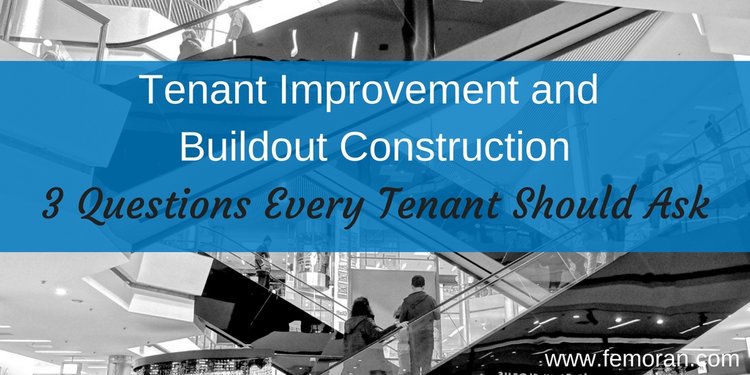
If you own a business, you have probably at some point entered into a lease. In this lease is one of the most important/complicated clauses: tenant improvement. This clause will determine how you can customize the space for your business and your allowance for doing so. Are you asking the right questions about tenant improvement?
Making your business’ space unique and custom to your needs is essential to your brand. Make sure you are asking the right questions when it comes to tenant improvement.
1. What is a tenant improvement?
Tenant Improvement or TI is done in commercial and industrial properties to accommodate the needs of a tenant. The most common tenant improvement needs are flooring, ceilings, partitions, air conditioning, fire protection, and security.
2. What types of commercial improvements are there?
There are three types of commercial improvements: interior improvements, landlord improvements, and tenant improvements.
1) Interior Improvements (II): This type of improvement is for a commercial space to make the interior work for a new tenant’s business. These improvements are made prior to a lease or as part of the lease agreement. II can include walls, floors, ceilings, lighting, and other interior decor-type improvements.
2) Landlord Improvements (LI): Landlord improvements provide an easy turnover for the next tenant. They are also known as “white box” improvements. This means that the landlord will make the space clean, repaired, and ready to move in. It is the step before tenants make their spaces unique for their business.
3) Tenant Improvement (TI): TI, also known as leasehold improvements or tenant development, is the opportunity for a tenant to make the property meet their business needs. This construction is either done by the landlord or the tenant. The lease will state who is responsible for making these improvements.
3. Who should manage the tenant improvement project?
The tenant should manage the project or hire a project manager. Landlords do not have the incentive to stay within budget or timeline because the tenant improvement allowance is pre-determined. However, tenants should keep in mind that the invoices need to be sent to the landlord to pay. Otherwise, there could be complications come tax time.
Your business is about to start in a new leased property. It is an exciting time for improvement and change. Make sure you are fully understanding your tenant improvement clause to get the most out of this opportunity.
Are you a business owner who has a tenant improvement story to share?
 May 22, 2018
May 22, 2018